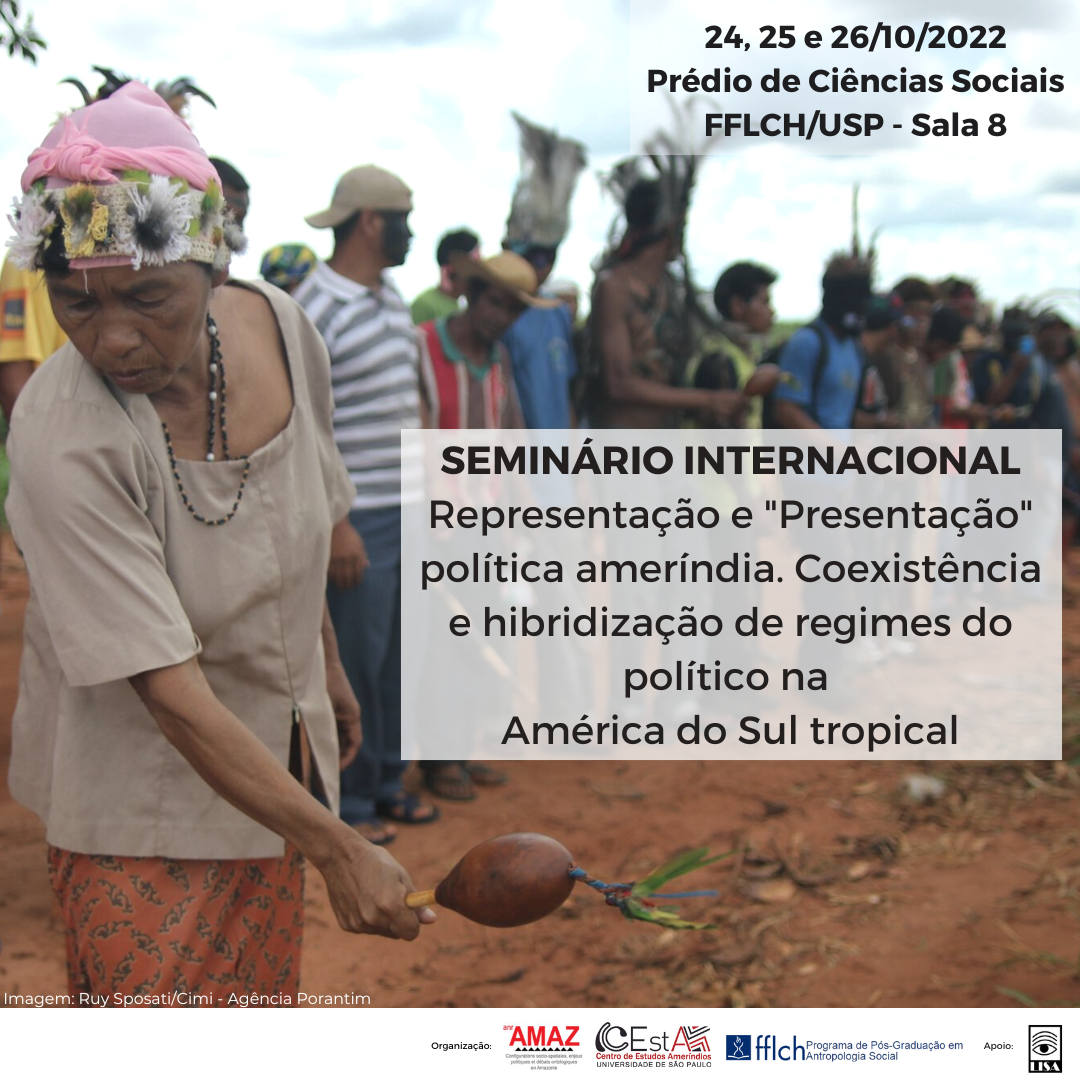Since the emergence of the first indigenous organizations in tropical South America in the 1970s, a process of exponential pace has led Amerindians to an intense participation in national politics both in the non-governmental sphere and in the official channels of the countries in which they are located. . The emergence of this form of politics did not, however, mean the disappearance of the Amerindian forms of politics that continued to evolve both in parallel and in relation to the new politics. If, in Amerindian politics, the delegation of power is much more exceptional, in the other politics, power is almost always delegated to the leader who acts as a spokesperson for those represented. This form of the political can be called “representative”, while the one that avoids the delegation of power could be qualified by the neologism “presentative”. This seminar intends to take a closer look at the moments in which these forms manifest themselves.
Organization: Alexandre Surrallés (ANR – AMAZ project coordinator), Renato Sztutman, Adriana Testa, Marcio Silva (USP/CEstA/AMAZ Team).
Support: PPGAS/USP and LISA
Seminar Schedule
Table 1: 10/24 Monday – afternoon (from 2:30 pm to 5:00 pm)
Opening
Ama-zomia or affectivity against the State - Alexandre Surrallés
Plurinational State and Indigenous Political Representation – Mauricio Terena
Links of representation and presentation between the Enawene-Nawe - Marcio Silva
Table 2: 25/10 Tuesday – morning (from 10 am to 1 pm) -
Policies of Consideration and “Presentation” - José Antonio Kelly & Marcos de Almeida Matos
Intertwining representative and participatory politics: indigenous protagonism in democratization processes in Brazil and Latin America – Luís Roberto de Paula
Representing the native community in the Peruvian Amazon - Magda Helena Dziubinska
Act of absence. The representation under tension within the Autonomous Territorial Government of the Wampis Nation (Perù, Aent Chicham) - Paul Codjia
Table 3: 10/25 Tuesday afternoon (2:30 pm to 5:00 pm)
Mbojoapyva: Kaiowá leaders in the Amambai Reserve, MS – Celuniel Aquino Valiente
Politics between the Kaiowá and Guarani in MS: oscillations and connections between indigenous politics -teko joja and non-indigenous politics -karai politics – Levi Marques Pereira
Politics and Mborayvu (Generosity) – Lucas Keese and Tiago Honório
Politics as Metaphor and Metonymy: Representation and Presentation in Guarani Mbya Circulation Networks – Adriana Queiroz Testa
Table 4: 10/26 Wednesday – morning (from 10 am to 1 pm)
The genre of politics: transformations of shamanism and leadership in the Upper Xingu – Antonio Guerreiro
Taking the words – politics between Guarani and Kaiowá women – Lauriene Seraguza
Cultivating Politics: A Conversation with the Runa People of Sarayaku – Marina Ghirotto
Indigenization of Brazilian institutional policy: notes on candidacies of indigenous women in the 2022 election – Renato Sztutman and Karen Shiratori
Table 5: 10/26 Wednesday afternoon (2:30 pm to 5:00 pm)
A Chief's Name: Politics and Names Among the Aweti – Marina Vanzolini Figueiredo
Visionary diplomats. The political subjectivations jibaro in the lower Marañón (Peruvian Amazon) – Thomas Mouriès
Without singing there is no party, without singing there is no struggle: reflections from the kanhgág tỹnh – Paola Andrade Gibram
“Authority that counts, distributes”. Reflections on representative urine policy based on local models of raw meat circulation. – Emanuele Fabiano
Closing


